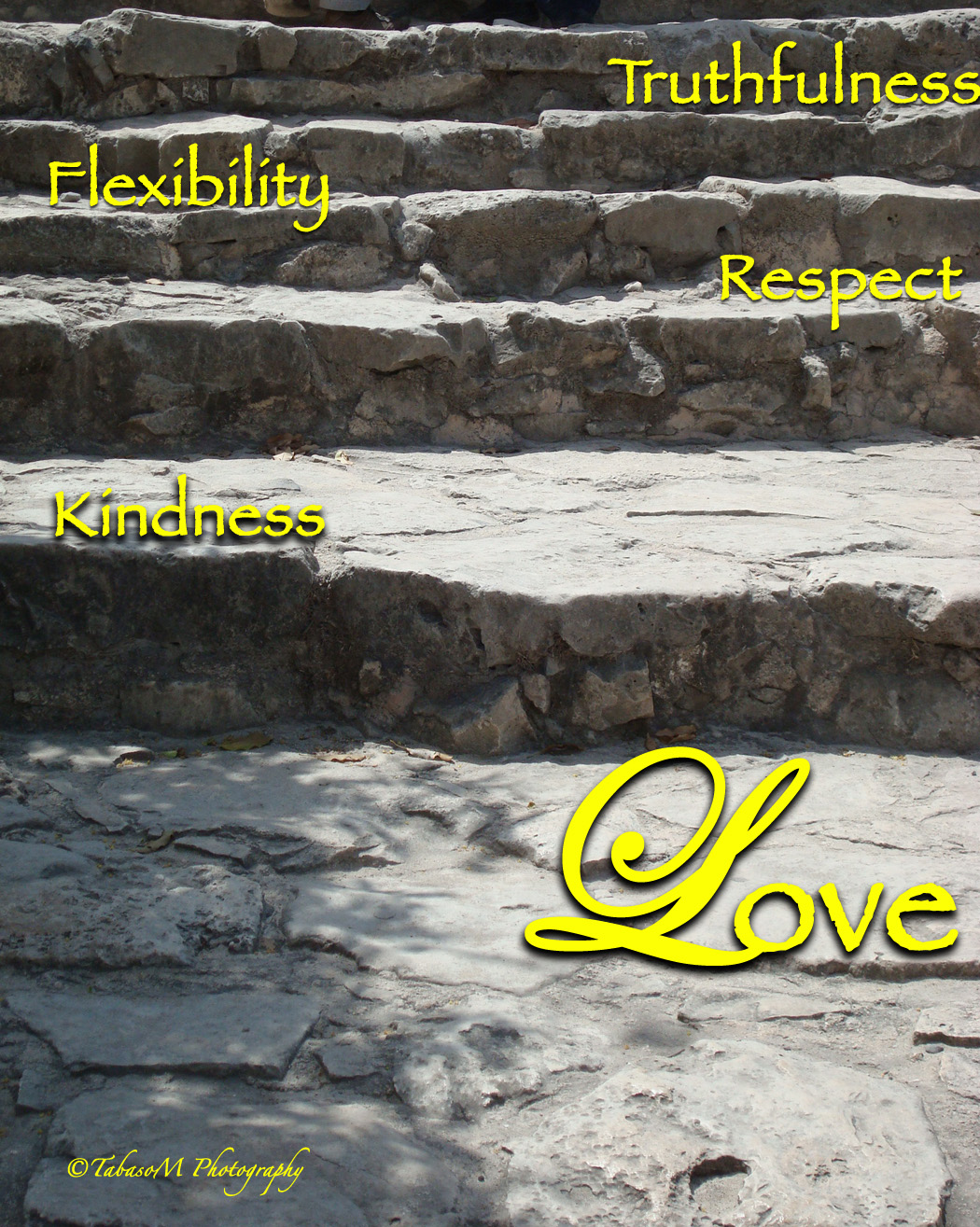By Tabasom Eblaghie,
Registered Clinical Counsellor
“Love gives life to the lifeless. Love lights a flame in the heart that is cold. Love brings hope to the hopeless and gladdens the hearts of the sorrowful.” ~‘Abdu’l-Bahá
Part of maintaining a respectful, friendship-based relationship includes ensuring that you know HOW to express love for each other and do it well. If you are having doubts whether your partner loves you, or your partner is uncertain about your feelings, your relationship begins to feel very insecure. The more you use loving words and practice loving actions towards each other, the more your feelings of love will grow.
Knowing how to express one’s love is more than just saying the words ‘I love you’, even though this may be a part of it.
One of our most basic needs is the need to be loved. It is essential to our emotional health.
Dr. Ross Campbell, a child psychiatrist, has written:
“Inside every child is an ‘emotional tank’ waiting to be filled with love. When a child really feels loved, he will develop normally but when the love tank is empty, the child will misbehave. Much of the misbehaviour of children is motivated by the cravings of an empty love tank.”
When one’s love tank is on empty, you may see ‘misbehaviour’ as a misguided search for the love one doesn’t feel.
The need to be loved is at the heart of one’s relationship desires. The most cruel of all punishments is solitary confinement – isolation is devastating to our mental and overall well being.
What happens when our emotional love tank’s gauge is on empty? Running your marriage on an empty love tank is destructive to the marriage, and to your own well-being. This can happen even though we express our love, but our partner speaks a different love language!
What is your Love Language? Gary Chapman has summarized the five love languages as follows:
LOVE LANGUAGE #1 – WORDS OF AFFIRMATION
• Using words that build up the other person;
• Verbal compliments & words of appreciation;
• Praise
• Encouraging language – words that inspire courage;
• Noticing and appreciating the other’s positive actions and qualities
• Focuses on what we are saying.
LOVE LANGUAGE #2 – QUALITY TIME
• Being available
• Doing something enjoyable and interactive together
• Giving someone our undivided, uninterrupted and focused attention
• Togetherness
• Quality conversation – focuses on what we’re hearing.
• Creating memorable moments
• Self revealing intimacy
LOVE LANGUAGE # 3 – GIFTS
• Tangible objects freely offered
• Visual symbols of love: “I was thinking of you”.
• Gifts of any shape, colour, size or price
• Visual symbols of love with no strings attached or to cover up a failure
• They are given any time and not just on special occasions
• Easiest of all love language.
LOVE LANGUAGE # 4 – ACTS OF SERVICE
• Willingly doing things for others in order to show our love;
• Welcome helpfulness
• Timely and positive response to requests (not demands) of the other
• Acts of kindness
• Done with a loving attitude (not fear, guilt or resentment)
• Acts that reflect equality and partnership
• Requires thought, planning, time, effort and energy.
LOVE LANGUAGE # 5 – PHYSICAL TOUCH
• Fundamental to the development of our brain – children who are held, hugged and kissed develop healthier emotional life;
• Holding hands, kissing, embracing, cuddling all forms of this love language;
• Loving (never abusive) physical contact at appropriate times and places
• Tender hugs, touches or pats on the arm, shoulder and back
• Physical touch can communicate hate or love
• Sexual relationship
• Holding while crying and comforting
• Very important in times of crisis.
Three ways to discover your own primary love language:
1. What does your spouse do or fail to do that hurts you most deeply? The opposite of what hurts you most is probably your love language.
2. What have you most often requested of your spouse? The thing you have most often requested is likely the thing that would make you feel most loved.
3. In what way do you regularly express love to your spouse?
To determine someone else’s love language, Chapman recommends:
• Observing their expressions, complaints and requests
• Asking questions
• Experimenting with offering each love language to a partner, friend or relative and observing their responses.
We must learn how to speak our partner’s/friend’s love language in order for them to feel loved – sometimes loving them the way WE want to be loved, produces less than ideal results! Communication is key here! Have a heart to heart conversation with what makes each of you feel MOST loved – and then do it!
******************
If you’d like to book an appointment, please feel free to call me, Tabasom, at 604-889-3635 and I’d be happy to discuss whether counselling would be appropriate for the issues you are facing today.












